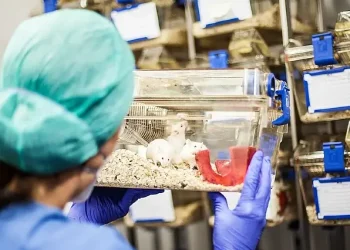The UK has launched a pioneering study to monitor antibiotic resistance in healthy dogs and cats, aiming to curb antimicrobial resistance (AMR) transmission between pets and humans.
Over four years, pet owners will submit faecal samples, contributing to vital research that could influence public health policies and veterinary practices nationwide.
Understanding the Study’s Importance
The UK’s Veterinary Medicines Directorate (VMD) has initiated the world’s first national surveillance study focusing on antibiotic resistance in healthy companion animals.
This groundbreaking research aims to fill a critical gap in understanding how resistant bacteria spread within shared human-pet environments. With over half of UK adults living with pets, this study is crucial for public health.
Led by Scotland’s Rural College (SRUC), the project represents a One Health approach, integrating human, animal, and environmental health perspectives.
By collecting faecal samples from healthy dogs and cats over four years, researchers hope to generate valuable data that can inform better treatment protocols and reduce costly treatment failures in veterinary care.
Why This Matters
- This is the first UK national surveillance targeting antibiotic resistance in healthy pets.
- Pet owners can actively contribute by submitting samples for research.
- The study addresses gaps in understanding AMR transmission between pets and humans.
- It complements existing studies on resistant bacteria in healthy people.
- The project is government-funded, highlighting its importance for biosecurity.
Effect on Pet Owners and Public Health
For pet owners across the UK, this initiative underscores the importance of responsible antibiotic use. It may lead to increased veterinary visits for monitoring or sample submissions while raising awareness about hygiene practices to minimize bacterial transmission at home.
The data collected will aid public health officials and veterinarians in improving infection control measures, potentially reducing healthcare costs and enhancing access to effective treatments for both humans and animals.
A Collaborative Effort
This initiative aligns with the UK’s One Health approach as part of its second 5-year National Action Plan on AMR. It responds directly to a Public Accounts Committee report highlighting surveillance gaps in animals.
The study complements recent research by the UK Health Security Agency (UKHSA) on antibiotic resistance among healthy individuals, marking a coordinated effort across species to tackle AMR effectively.
Expert Insights
“Antimicrobial resistance is one of the most serious global health threats that we face,”
said Abi Seager, CEO of VMD. “I am proud to launch this ground-breaking AMR surveillance project with SRUC.”
“This initiative is critical for understanding AMR transmission in our pets,”
stated John Berezowski from SRUC. “Our experts have developed a practical system working with pet owners and vets.”
Additional Reading
Bottom Line
This innovative study positions the UK as a leader in global efforts against antimicrobial resistance by focusing on healthy pets as potential carriers of resistant bacteria.
By involving pet owners directly, it fosters community engagement while providing critical data that could shape future public health strategies both domestically and internationally.
More of Todays Top Breaking Government News Stories!
Sources: UK Government, World Health Organization, and Veterinary Medicines Directorate.
Prepared by Ivan Alexander Golden, Founder of THX News™, an independent news organization delivering timely insights from global official sources. Combines AI-analyzed research with human-edited accuracy and context.









